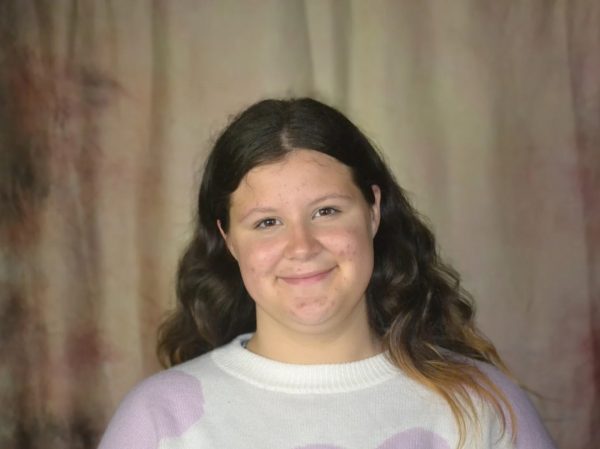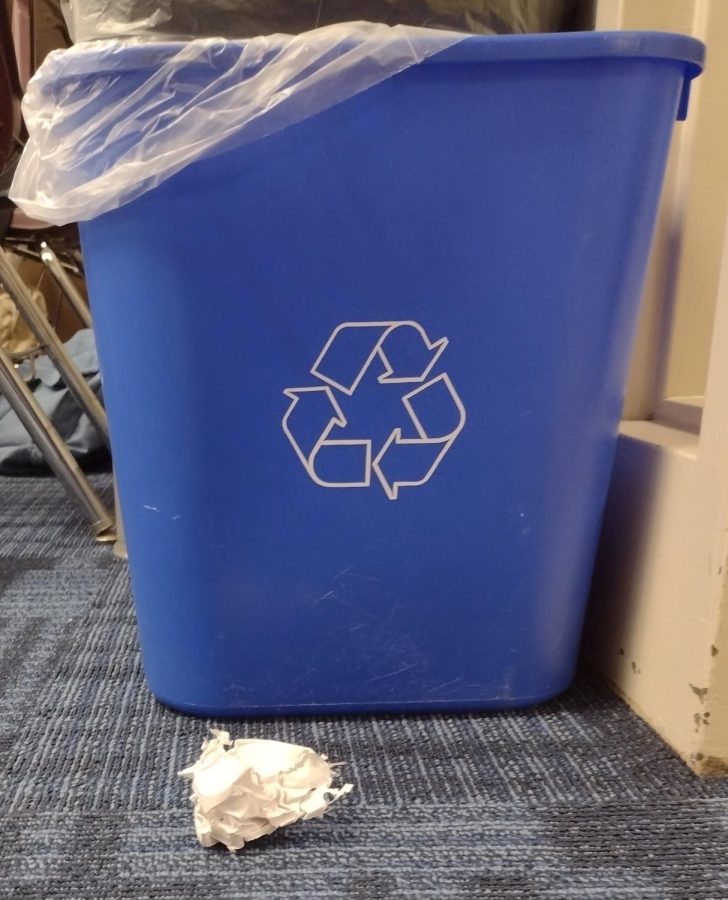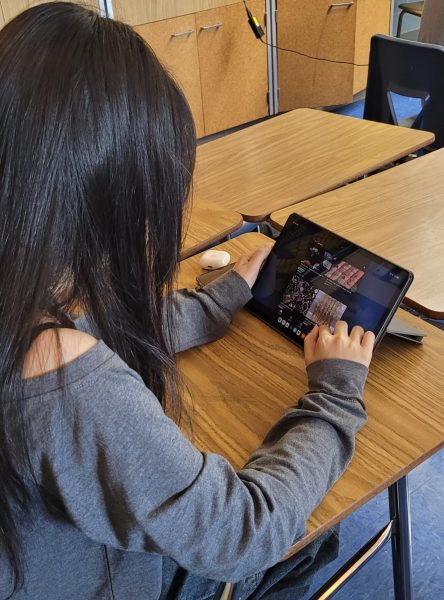Columbia Heights, it’s time to recycle!
Recycling can help the Earth against climate change but examples like this can do more harm than actually trying to repurpose items.
In a time of crackdowns on carbon emissions internationally, many at Columbia Heights High School (CHHS), unfortunately, don’t do their part to combat the effects of climate change.
Recycling is one of many things that come to mind when thinking about how to limit climate change and take care of the planet ever since its inception in the U.S. in the 1970s. It is one of the first things many kids learn in school to help better our environment. It doesn’t only include putting bottles, glass, paper and cardboard in a blue-colored bin; it’s about finding ways to be resourceful with items you own and avoiding rampant consumerism.
Sadly, this kind of recycling isn’t as common and often forgotten about entirely. One of the major drawbacks of recycling, however, is carbon emissions of garbage/recycling trucks. A garbage truck that drives 25,000 miles a year will produce around 100 metric tons of carbon dioxide (CO2). There are about 136,000 garbage trucks just in the United States (U.S.) This means that in the U.S. alone, garbage trucks produce 13,600,000 tons of CO2 annually.
Schools are some of the biggest buildings in the U.S. They are able to hold thousands of people daily, what happens to all of the food waste that is made? Schools emit as much CO2 as 8 million homes. Schools also use around 530,000 tons of food annually. Also, a common mode of transportation to and from school (buses) is run by diesel engines.
Despite all of the rumors, Columbia Heights Public Schools (CHPS) does, in fact, have a recycling program. All of the bins labeled “recycling” end up getting placed in the recycling bin out back only if the proper precautions have been followed. If any of the items in the bin currently contain any food or drinks in them, the entire bin must be thrown away.
“I think that it’s an issue in part because there are materials that can be recycled, such as aluminum,” CHHS Environmental Science teacher Ms. Emily Shields said. “We could also do more in terms of composting and other separation of materials.”
To combat climate change here in Columbia Heights, in addition to recycling, residents also have the option to pay for a compost bin. Any food or yard waste can go in these bins and have it picked up the same day as their normal garbage/recycling during the “yard waste” season. Residents have the option of a 30-gallon or 90-gallon cart. Every purchase also comes with a “kitchen starter kit” containing the required bags for all compost and a bag of starter compost. This program is also one in which CHHS does now participate!
In the United States, crackdowns on climate change education are facing schools nationwide too. Many schools across the nation will only spend a few hours talking about the history of climate change and its effects in the future. High school-age students are being taught that the climate change debate is mostly political instead of scientific. Climate change is mostly human-lead, so why is it being taught as nothing but some political debate (much like gun control or police brutality, but I digress) that has no reason to be taught in schools?
Surprisingly, schools have a large impact on carbon emissions in the U.S. According to the U.S. Department of Energy, schools spend over $8 billion on energy. That much energy emits an average of 72 million tons of Co2. If those are the emissions in the U.S. alone, what is it like internationally? Not to mention, school buses often have diesel engines that release significantly more Co2 than the average engine.
Several students and teachers have acknowledged this rumor in Heights as a humorous joke. If it’s something that everyone knows about, why don’t we do something about it? We as Hylanders need to educate our peers on how to properly recycle and what to do with any leftover food in containers so that these items don’t end up in the wrong places.
If more staff and students push back on this, there’s a chance that we can get an adequate recycling program established at CHHS. The time to reduce our carbon emissions is now, and it all starts with recycling. There are many things that we can do to spread recycling at our school: educate our peers, have proper education on recycling, or even have a penalty system in place for students or teachers that don’t follow our recycling protocol.
We need to get to the root of the problem, such as adamantly talking to the administration about your desire to have a better recycling program here at Heights. We are the future generation that is going to have to live in a world affected by climate change. We all need to come together to change the future — not only for us but for future generations too.

Caroline Raleigh is a senior at CHHS. This is her second year on staff, now as Editor-In-Chief after being a Staff Writer last year. She is the Chair of...







